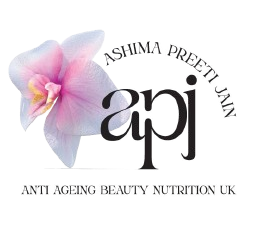
For most of us, aging gracefully is easier said than done, thanks to the sun damage we garnered in our teens and busy schedules that leave us little time to take care of ourselves. Thankfully, prioritizing healthy foods and proper hydration can really go the distance when it comes to achieving that youthful glow.
We sought out the expert advice of Sarah Sawyer, MD, a board-certified dermatologist based in Birmingham, Alabama who specializes in anti-aging and cosmetic dermatology. She is also board certified in Integrative Medicine, which blends traditional and alternative strategies to prevent disease and aging.
“Nutrition plays a role in multiple ways, but primarily through the path of inflammation,” Sawyer says. “We know now that many skin diseases, including aging, are a result of inflammation in the body. There is great data that shows the skin negatively responds to systemic inflammation the same way that other vital organs do.”
Sawyer advises her patients to follow an anti-inflammatory diet, as outlined by Dr. Andrew Weil. An anti-inflammatory diet is very similar to the popular Mediterranean Diet plan in that it prioritizes whole, plant-based foods alongside lean protein and healthy fats. Below, you’ll find Dr. Weil’s parameters for a successful anti-inflammatory diet:
- Fruits: 3-4 servings per day (one serving is equivalent to one medium-sized fruit or ½ cup chopped or dried fruit)
- Vegetables: at least 4-5 servings per day (one serving is equivalent to 2 cups of salad greens or ½ cup cooked, raw or juiced vegetables)
- Beans & Legumes: 1-2 servings per day (one serving is equivalent to a ½ cup)
- Pasta: 1-2 servings a week (one serving is equivalent to a ½ cup of cooked pasta)
- Whole Grains: 3-5 servings a day (one serving is equivalent to ½ cup cooked grains)
- Monounsaturated/Omega-3 Rich Fats: 5-7 servings per day (one serving is equivalent to 1 teaspoon of oil, 2 walnuts, 1 tablespoon of flaxseed or 1 ounce of avocado)
- Fish & Shellfish: 2-6 servings a week (one serving is equivalent to 4 ounces)
- Whole-Soy Foods: 1-2 servings a day (one serving is equivalent to ½ cup tofu or tempeh, 1 cup soy milk, ½ cup cooked edamame or 1 ounce soy nuts)
- Cooked Asian Mushrooms: unlimited amounts
- Dairy, Poultry, and Grass-Fed Meats: 1-2 servings a week (one serving is equivalent to 1 ounce of cheese, an 8-ounce serving of dairy, 1 egg or 3 ounces cooked poultry or skinless meat)
- Herbs & Spices: unlimited amounts
- Tea: 2-4 cups a day
- Red Wine: no more than 1-2 glasses a day
- Dark Chocolate: Sparingly
Additionally, Sawyer notes that drinking plenty of water is very important to ensure all systems are working properly—our skin is the largest organ, after all! She stands by the general 8×8 recommendation—or 64 ounces a day—and would advise drinking even more if you’re active. But don’t worry, tea and coffee also contribute to your intake (along with several other healthy foods), and provide a great source of antioxidants.
Sawyer also mentioned the foods she advises her patients steer clear from—refined sugar and processed foods. She says these foods cause inflammation in the body and stand in the way of healthy skin. Plus, the more processed food we eat, the more difficult it becomes to meet our recommendations for whole foods, like fruits, whole grains and veggies—something most of us already don’t get enough of.
Good nutrition with lots of antioxidants from fruits and vegetables is a wonderful addition to sun protection, restorative sleep and physical activity, as well as a good skin care regimen and in-office skin procedures,” Sawyer says.
Sawyer advises her patients to use topical antioxidants as they help the skin immediately absorb all the nourishing goodness. She says since the skin is a living, breathing organ, the best topical antioxidants are probably absorbed and delivered to the skin just as well—or even better—than when consumed from food.
The Bottom Line
There is plenty of research out there to show following an anti-inflammatory, Mediterranean diet has loads of benefits outside of just photo-ready skin. This kind of diet shows to help prevent chronic disease, help us maintain a healthy weight and promote longevity. We could all do better to consume more fruits and veggies, choose whole grains over refined most of the time and prioritize omega-3 and unsaturated fats over saturated ones.







